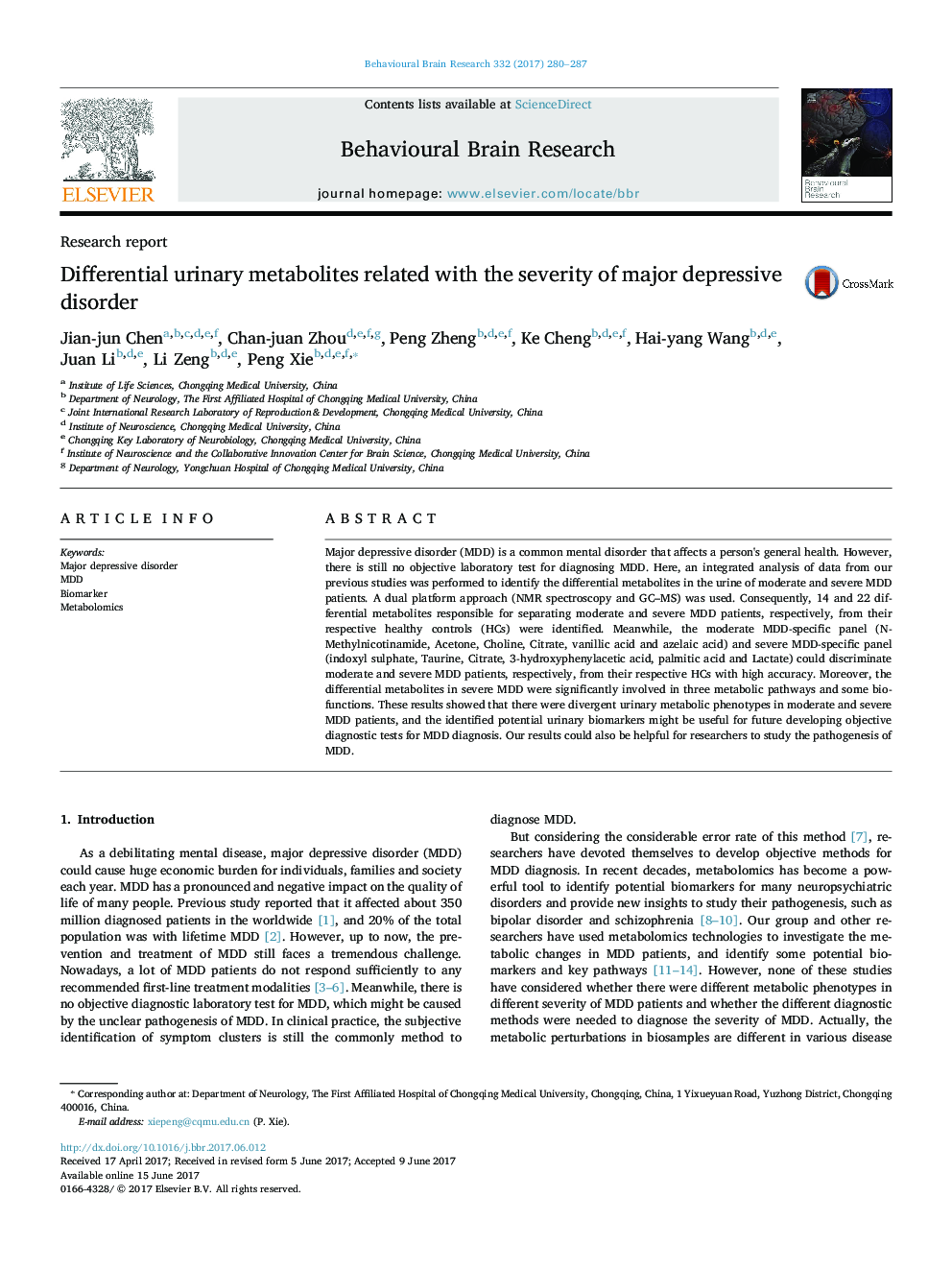| Article ID | Journal | Published Year | Pages | File Type |
|---|---|---|---|---|
| 5735124 | Behavioural Brain Research | 2017 | 8 Pages |
â¢Moderate MDD-specific panel consisting of five metabolites was identified.â¢Severe MDD-specific panel consisting of five metabolites was identified.â¢Moderate and severe MDD patients have divergent urinary metabolic phenotypes.
Major depressive disorder (MDD) is a common mental disorder that affects a person's general health. However, there is still no objective laboratory test for diagnosing MDD. Here, an integrated analysis of data from our previous studies was performed to identify the differential metabolites in the urine of moderate and severe MDD patients. A dual platform approach (NMR spectroscopy and GC-MS) was used. Consequently, 14 and 22 differential metabolites responsible for separating moderate and severe MDD patients, respectively, from their respective healthy controls (HCs) were identified. Meanwhile, the moderate MDD-specific panel (N-Methylnicotinamide, Acetone, Choline, Citrate, vanillic acid and azelaic acid) and severe MDD-specific panel (indoxyl sulphate, Taurine, Citrate, 3-hydroxyphenylacetic acid, palmitic acid and Lactate) could discriminate moderate and severe MDD patients, respectively, from their respective HCs with high accuracy. Moreover, the differential metabolites in severe MDD were significantly involved in three metabolic pathways and some biofunctions. These results showed that there were divergent urinary metabolic phenotypes in moderate and severe MDD patients, and the identified potential urinary biomarkers might be useful for future developing objective diagnostic tests for MDD diagnosis. Our results could also be helpful for researchers to study the pathogenesis of MDD.
